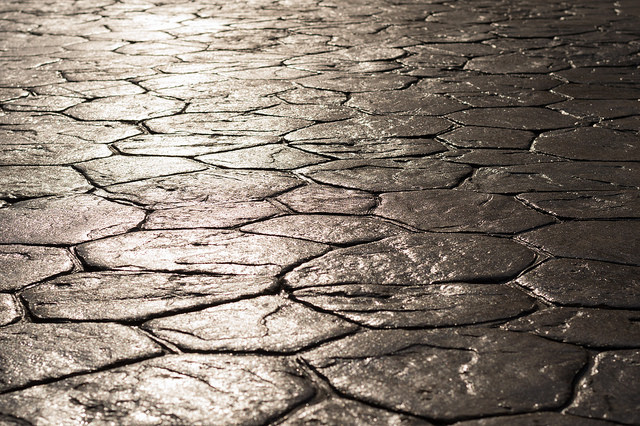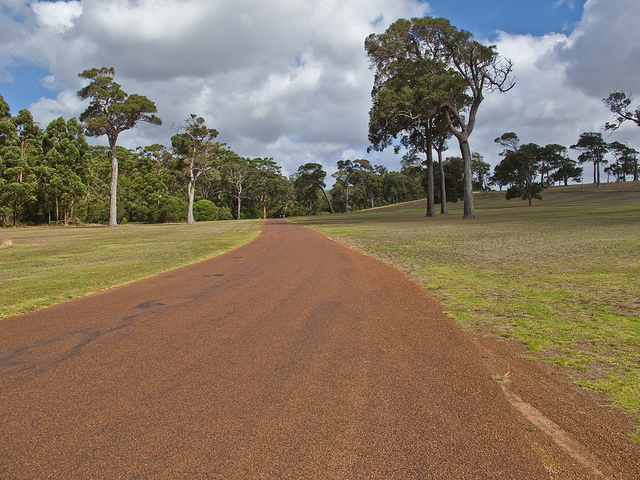Whether you are building a new home or changing an existing home, the driveway plays an important role. The type of driveway you choose for your Edmonton home affects the curb appeal and how the entire look of the home ties in together. You have many options available to choose. There are two basic types, aggregate and smooth, but the wealth of options comes from the different types within those two groups. Some popular choices for aggregate types include gravel, shell, sand, and glass. Smooth driveway types include concrete, asphalt, brick, and stone.
Aggregate Driveway Types
Gravel
Although gravel is a cost-effective option for a driveway, it can be difficult to maintain. It is fairly easy to spread initially, only typically requiring a metal rake and shovel to spread. On the other hand, they are not ideal for particularly rainy or cold climate regions. Due to the very cold winters and excessive snow in Edmonton, a gravel driveway may not be ideal for sloped driveways because the gravel can lead to an icy driveway in winter and displacement from rain water runoff in warmer seasons.
Shell
An increasingly popular type of aggregate is crushed seashells. In this group, you can choose from oyster, clam, and scallop shells. The colors range from a brownish color to shades of gray. This option provides a unique, eco-friendly look with the added benefit of exceptional drainage. There are some drawbacks, however. The biggest downfalls are sharpness and displacement. It is not recommended for homes with kids who walk barefoot or for sloped driveways.
Sand
Similar to other aggregate materials, sand can be a cost-effective choice. Sand can be dyed to provide a large number of color choices and the thickness can be varied. Unfortunately, using sand can require a substantial amount of maintenance to keep it from running down the driveway or into the yard during rain.
Glass
A glass driveway might pop into someone’s mind as a sheet similar to what is used for windows or other such applications. When used as a driveway surface, it is completely different. Recycled, tumbled glass pieces are used, often in conjunction with a solidifying material such as resin. One major drawback, which is sharp edges, can be avoided by ensuring the glass is adequately tumbled.
Smooth Driveway Types
Concrete
Concrete is growing in popularity, especially with all the different options that are now available. Driveways made with concrete no longer having to be boring and gray. You can choose from a large color palette that includes earth tones and vibrant colors such as blue and yellow. The coloring can be added during mixing with dyes or applied on the surface in stains. Also, the surface can be stamped with designs or polished to look like marble.
Asphalt
Asphalt driveways are one of the most common types, particularly for homeowners with long driveways. They are often chosen for their durability and low maintenance. Some types of asphalt can be mixed with small amounts of gravel or pebbles to add some texture and slip resistance. As a downside, once the asphalt begins to crack and deteriorate, it should be repaired quickly because it will worsen.
Brick/Brick Pavers
Brick is a choice as well. Also known as pavers, the bricks can be arranged in a multitude of ways to create patterns and achieve different looks. They can be set in the traditional manner, using sand underneath the bricklayer to help prevent shifting. Another option, which is more permanent, is to use mortar in between the bricks and underneath to keep them in a fixed position.
Stone
If you decide you like the look that stone creates, you can use the same materials for your driveway that you might use for your walkways and patios. Options include travertine, slate, and other kinds of natural stone. You could also choose rounded, small stones for a cobblestone driveway. Some homeowners choose cut stones for uniformity in size and shape, while others prefer to have different sizes and shapes.
Ultimately, your personal tastes will determine which type of driveway you choose. There are still some things to keep in mind, however. Consider the strain that climate will cause, the amount of traffic you have, and the maintenance. With these basic factors, you can choose a type that is best suited for you.

